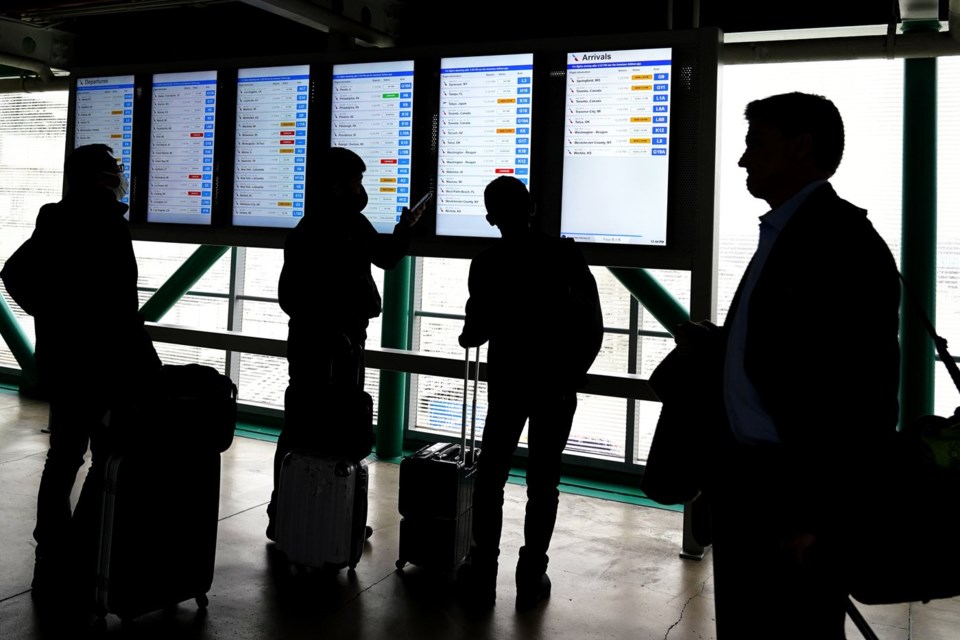Expedia Group said Friday that reduced travel demand in the United States led to its weaker-than-expected revenue in the first quarter, and Bank of America said credit card transactions showed spending on flights and lodging kept falling last month.
The two reports add to growing indications that the U.S. travel and tourism industry may see its first slowdown since the end of the COVID-19 pandemic fueled a period of “revenge travel” that turned into sustained interest in getting away.
Expedia, which owns the lodging reservation platforms Hotels.com and VRBO as well as an eponymous online travel agency, was the latest American company to report slowing business with both international visitors and domestic travelers.
Airbnb and Hilton noted the same trends last week in their quarterly earnings reports. Most major U.S. airlines pulled their full-year financial guidance in April and said they planned to reduce scheduled flights, citing an ebb in economy passengers booking leisure trips.
The U.S. Travel Association has said that economic uncertainty and anxiety over President Donald Trump's tariffs may explain the pullback. In April, Americans’ confidence in the economy slumped for a fifth straight month to the lowest level since the onset of the pandemic.
Bank of America said Friday that its credit card holders were willing to spend on “nice to have” services like eating at restaurants in March and April, but “bigger ticket discretionary outlays on airfare and lodging continued to decline, possibly due to declining consumer confidence and worries about the economic outlook.”
Abroad, anger about the tariffs as well as concern about tourist detentions at the U.S. border have made citizens of some other countries less interested in traveling to the U.S., tourism industry experts say.
The U.S. government said last month that 7.1 million visitors entered the U.S. from overseas this year as of the end of March, 3.3% fewer than during the first three months of 2024.
The numbers did not include land crossings from Mexico or travel from Canada, where citizens have expressed indignation over Trump's remarks about making their country the 51st state. Both U.S. and Canadian government data have shown steep declines in border crossings from Canada.
Expedia Chief Financial Officer Scott Schenkel said the net value of the travel technology company's bookings into the U.S. fell 7% in the January-March period, but bookings to the U.S. from Canada were down nearly 30%.
In a conference call with investors Friday, Expedia CEO Ariane Gorin said U.S. demand was even softer in April than March.
“We’re still continuing to see pressure on travel into the U.S., but we’ve also seen some rebalancing,” Gorin said. “Europeans are traveling less to the U.S., but more to Latin America.”
Seattle-based Expedia said its revenue rose 3% to $2.99 billion for the quarter. That was lower than the $3 billion Wall Street was expecting, according to analysts polled by FactSet.
Expedia shares were down than 7% in mid-day trading Friday.
Airbnb said last week that foreign travel to the U.S. makes up only 2% to 3% of its business. But within that category, it's seeing declining interest in the U.S. as a destination.
“I think Canada is the most obvious example, where we see Canadians are traveling at a much lower rate to the U.S. but they’re traveling more domestically, they are traveling to Mexico, they are going to Brazil, they’re going to France, they’re going to Japan,” Airbnb Chief Financial Officer Ellie Mertz said in a conference call with investors.
Meanwhile, Hilton lowered its full-year forecast for revenue per available room, a key industry metric. The company said in late April that it now expects growth of 0% to 2% for the year, down from 2% to 3%.
Hilton President and CEO Christopher Nassetta told stock analysts the company saw international travel to its U.S. hotels fall throughout the first quarter, particularly from Canada and Mexico.
But Nassetta said he remained optimistic for the second half of this year.
“My own belief is you will see some of — if not a lot of — that uncertainty wane over the next couple of quarters, and that will allow the underlying strength of the economy to shine through again,” he said.
Dee-ann Durbin, The Associated Press



